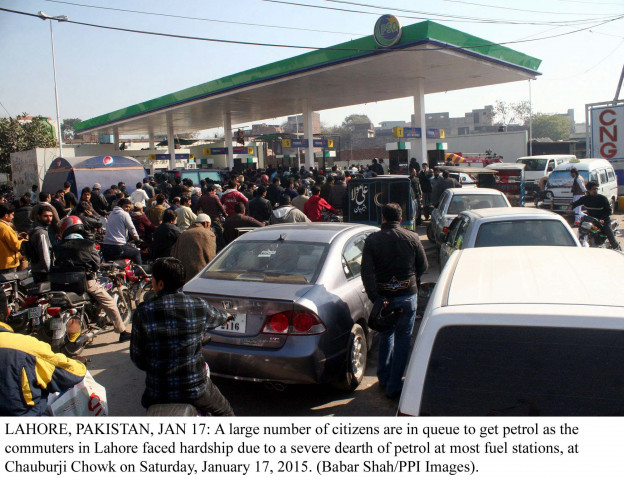Petrol shortage
Petroleum minister says consignments have been imported, shortage will be addressed. It may solve the current crisis

Commuters line up at a filling station in Lahore to get petrol. PHOTO: PPI
This whole scenario entails that there will be a supply shortage when it comes to petrol as declining prices sway oil companies from holding inventory. However, these companies should note that their role is to hold inventory after studying possible demand. They should understand market dynamics and know that consumers would want more fuel as they shift from CNG. Demand also goes up when prices come down. This is basic economics. On top of this, the piling circular debt, failure to clear payments of PSO — which has the largest market share — and the fog in Punjab that made transportation slower, and an opportunity to make the case for price deregulation, were all issues that caused the petrol shortage. Ogra will issue notices to oil companies after which they will look to resolve the matter. The petroleum minister has said that consignments have been imported and the shortage will be addressed. This may solve the current crisis. But, this will not be akin to resolving deep-rooted issues of the circular debt.
Published in The Express Tribune, January 18th, 2015.
Like Opinion & Editorial on Facebook, follow @ETOpEd on Twitter to receive all updates on all our daily pieces.














COMMENTS
Comments are moderated and generally will be posted if they are on-topic and not abusive.
For more information, please see our Comments FAQ